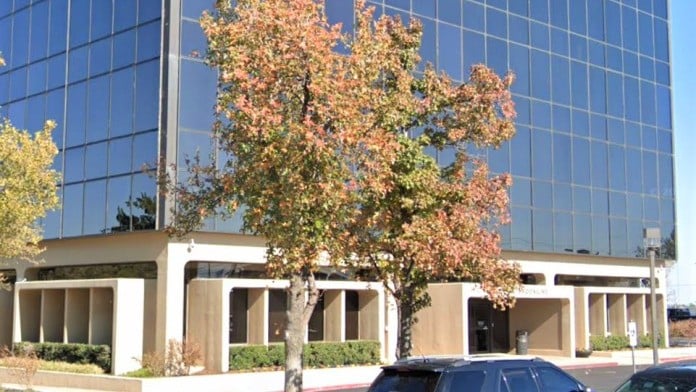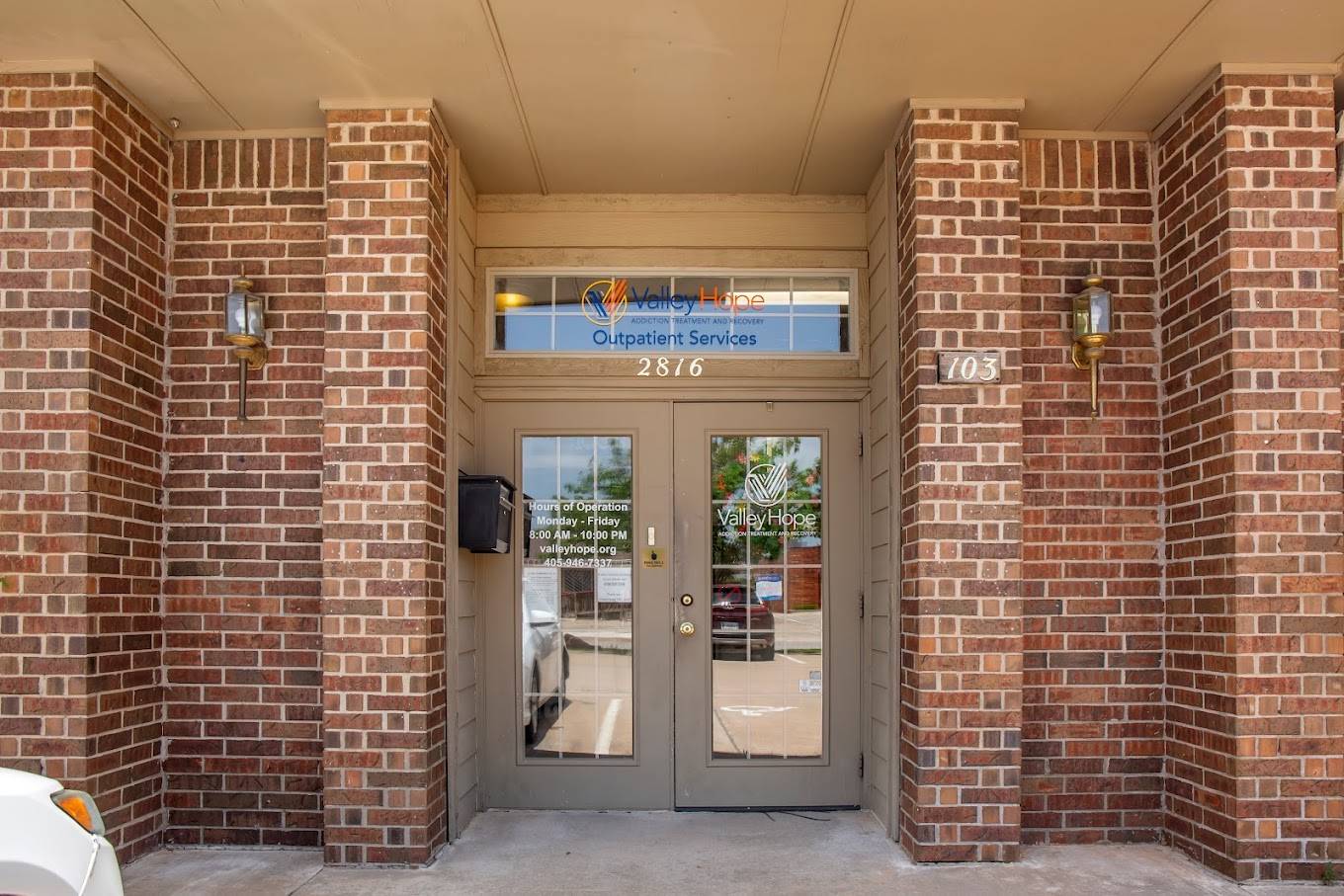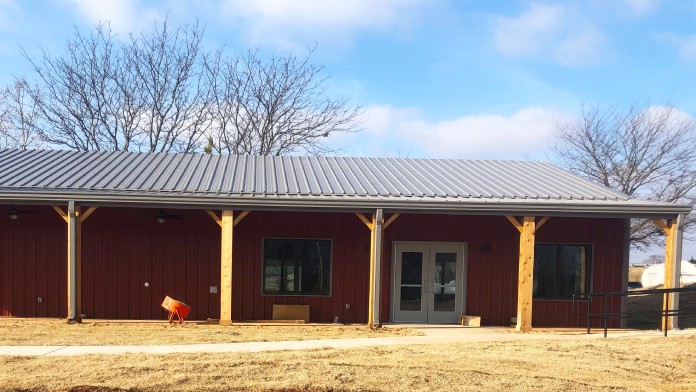They are prompt to help you. Thanks to all the supportive and knowledgeable staff who received me and helped me with a smile.
About New Beginnings Counseling Services
New Beginnings Counseling Services in Oklahoma City, Oklahoma, provides mental health and addiction treatment services. Support extends to individuals experiencing severe emotional disturbances (SED), as well as families, including non-traditional, blended and multigenerational units.
The organization accepts state-financed health plans such as Medicaid, private plans and military insurance. Access to Recovery (ATR) vouchers and self-pay are also valid options.
A Holistic Approach to Drug Rehab Services
Addiction treatment services are provided here on an outpatient basis, with various therapeutic methods employed. Family and couples counseling are provided where relevant, along with styles like play therapy, art therapy, internal family systems (IFS) and psychoeducation.
Art therapy can be effective at helping clients find a different way to express their emotions as well as cope with them without the use of substances. In family counseling, families will be able to learn how to best support their loved ones as they recover.
School advocacy and consultation services are also provided, along with training and lectures to encourage prevention. On-site clients are allowed to smoke in specified areas.
Recreational Activities in Oklahoma City
Nearby green spaces like Lake Hefner and Will Rogers Park provide clients with ample opportunities to wander, cycle and sail. The peaceful backdrops give clients an opportunity to reflect on their recovery journey and relax.
Feedback overall for this facility is positive, with lots of reviews generated. Many former clients praise the staff support, as well as the effective counseling services provided. In particular, it’s really emphasized how well the therapists are able to help clients process trauma and work through challenging life events.
Latest Reviews
At New Vision Counseling and Consulting, the comfort and encouragement you felt with Rachael is what we want every person to experience. Whether someone meets with a counselor in Edmond or reaches out for counseling Okc, our team works hard to create a safe, steady space where people can sort through what they’re carrying and feel supported as they move toward healing and clarity. We’re here to help people navigate anxiety, stress, relationship struggles, trauma, and the emotional challenges that can feel overwhelming on your own.
New Vision Counseling and Consulting is honored to walk alongside individuals and families in Okc and Edmond, offering guidance that brings hope, strength, and meaningful growth.
Shawn Maguire, LPC
Founder / Counselor / Speaker
Rehab Score
Location
Accepted Insurance
Other Forms of Payment
Medicaid is a state based program that helps lower-income individuals and families pay for healthcare. Medicaid covers addiction treatment so those enrolled can use their coverage to pay for rehab. When a program accepts Medicaid the client often pays very little or nothing out of their own pocket.
Private insurance refers to any kind of healthcare coverage that isn't from the state or federal government. This includes individual and family plans offered by an employer or purchased from the Insurance Marketplace. Every plan will have different requirements and out of pocket costs so be sure to get the full details before you start treatment.
Self-pay involves paying for treatment out of your own pocket. You can use savings or credit, get a personal loan, or receive help from family and friends to fund your treatment. If you don't have insurance or your insurance plan doesn't cover a specific program, self-pay can help ensure you still get the care you need.
Financial aid can take many forms. Centers may have grants or scholarships available to clients who meet eligibility requirements. Programs that receive SAMHSA grants may have financial aid available for those who need treatment as well. Grants and scholarships can help you pai for treatment without having to repay.
Military members, veterans, and eligible dependents have access to specific insurance programs that help them get the care they need. TRICARE and VA insurance can help you access low cost or no cost addiction and mental health treatment. Programs that accept military insurance often have targeted treatment focused on the unique challenges military members, veterans, and their families face.
Addiction Treatments
Levels of Care
Outpatient Programs (OP) are for those seeking mental rehab or drug rehab, but who also stay at home every night. The main difference between outpatient treatment (OP) and intensive outpatient treatment (IOP) lies in the amount of hours the patient spends at the facility. Most of the time an outpatient program is designed for someone who has completed an inpatient stay and is looking to continue their growth in recovery. Outpatient is not meant to be the starting point, it is commonly referred to as aftercare.
Completing a drug or alcohol rehab program shouldn't spell the end of substance abuse treatment. Aftercare involves making a sustainable plan for recovery, including ongoing support. This can include sober living arrangements like halfway houses, career counseling, and setting a patient up with community programs like Alcoholics Anonymous (AA) or Narcotics Anonymous (NA).
Treatments
Mental health rehabs focus on helping individuals recover from mental illnesses like bipolar disorder, clinical depression, anxiety disorders, schizophrenia, and more. Mental health professionals at these facilities are trained to understand and treat mental health issues, both in individual and group settings.
Programs
Adult rehab programs include therapies tailored to each client's specific needs, goals, and recovery progress. They are tailored to the specific challenges adult clients may face, including family and work pressures and commitments. From inpatient and residential treatment to various levels of outpatient services, there are many options available. Some facilities also help adults work through co-occurring conditions, like anxiety, that can accompany addiction.
Young adulthood can be an exciting, yet difficult, time of transition. Individuals in their late teens to mid-20s face unique stressors related to school, jobs, families, and social circles, which can lead to a rise in substance use. Rehab centers with dedicated young adult programs will include activities and amenities that cater to this age group, with an emphasis on specialized counseling, peer socialization, and ongoing aftercare.
Clinical Services
Whether a marriage or other committed relationship, an intimate partnership is one of the most important aspects of a person's life. Drug and alcohol addiction affects both members of a couple in deep and meaningful ways, as does rehab and recovery. Couples therapy and other couples-focused treatment programs are significant parts of exploring triggers of addiction, as well as learning how to build healthy patterns to support ongoing sobriety.
Research clearly demonstrates that recovery is far more successful and sustainable when loved ones like family members participate in rehab and substance abuse treatment. Genetic factors may be at play when it comes to drug and alcohol addiction, as well as mental health issues. Family dynamics often play a critical role in addiction triggers, and if properly educated, family members can be a strong source of support when it comes to rehabilitation.
Group therapy is any therapeutic work that happens in a group (not one-on-one). There are a number of different group therapy modalities, including support groups, experiential therapy, psycho-education, and more. Group therapy involves treatment as well as processing interaction between group members.
In individual therapy, a patient meets one-on-one with a trained psychologist or counselor. Therapy is a pivotal part of effective substance abuse treatment, as it often covers root causes of addiction, including challenges faced by the patient in their social, family, and work/school life.
Life skills trainings involve all the skills a person must have in order to function successfully in the world. These include time management, career guidance, money management, and effective communication. Truly successful addiction recovery is based on the ability to not only live substance-free, but to thrive. Life skills teaches the practical necessities of functioning in society, which sets clients up for success in life, and therefore sobriety.
Staff & Accreditations
Staff
Ruth Burton-Pugh
Executive Director
Julian Rice
Director, Community Relations
Accreditations

The Commission on Accreditation of Rehabilitation Facilities (CARF) is a non-profit organization that specifically accredits rehab organizations. Founded in 1966, CARF's, mission is to help service providers like rehab facilities maintain high standards of care.
CARF Accreditation: Yes
Accreditation Number: 206722

The Substance Abuse and Mental Health Services Administration (SAMHSA) is a branch of the U.S. Department of Health and Human Services. Established in 1992 by congress, SAMHSA's mission is to reduce the impact of substance abuse and mental illness on American's communities.
SAMHSA Listed: Yes

State Licenses are permits issued by government agencies that allow rehab organizations to conduct business legally within a certain geographical area. Typically, the kind of program a rehab facility offers, along with its physical location, determines which licenses are required to operate legally.
State License: Oklahoma
Contact Information
5929 North May Avenue
Suite 302
Oklahoma City, OK 73112








